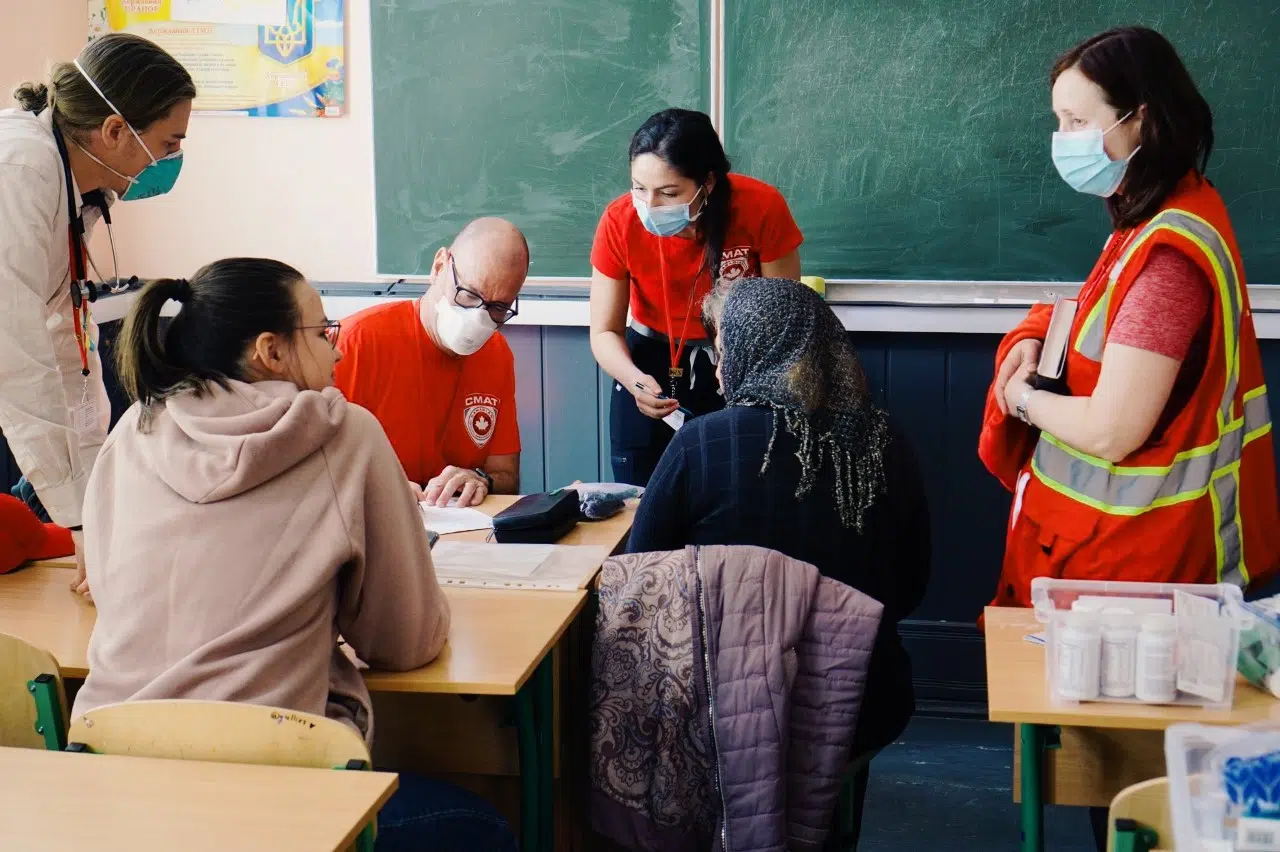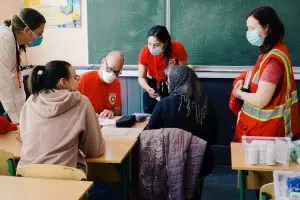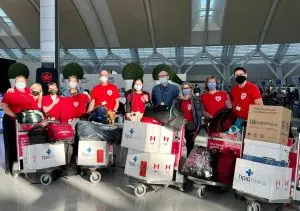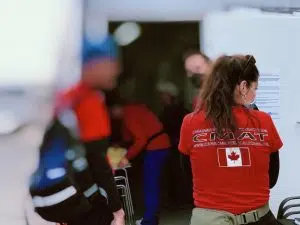
This week CKDR News is featuring the story of a young nurse from Wabigoon Lake Ojibway Nation who is back home after working 17 days in war torn Ukraine helping those in need.
Michaela Parenteau is a 25 year old Registered Nurse who works in Pikangikum and other remote First Nations.
She was part of the Canadian Medical Assistance Team.
Parenteau says the initial call for help came from the Registered Nurses Association of Ontario.
She notes the original call-out was to volunteer in Poland but over time the mission changed to provide humanitarian aid in Ukraine.
Parenteau says her team was not front-line but they had a permanent medical facility established as well as a mobile unit where they witnessed hundreds of women and children crossing into Poland to flee the violence.
Michaela says their responsibility was caring for those who weren’t able to cross or chose to stay behind.
“Their stories that they shared with us were horrendous and unimaginable.”
Parenteau says they dealt with some medical and physical care but a lot had to deal with mental health and coping without their families.
“Post-traumatic stress disorder. Children unable to sleep at night, insomnia, night terrors, bed wetting, a lot of people running out of medication because they were no longer able to access their medical care, filling those prescriptions, listening to their stories.
She adds, “Being a support. A lot of the times we didn’t have the medication or the resources to provide the care that we would be able to in Canada. But, just being there and being present for those people who were coming to us for medical aid and support during that time.”
Parenteau admits this also takes a toll on the mental health of those on the ground.
“What’s happening in Ukraine is something that nobody really thought was going to happen and the extent of being there, what we’re seeing on the news is really what’s happening. The stories that we’ve been told and the pictures that have been shared with us. Just being on the front lines has been really eye opening.”
She notes, “There’s never enough mental health support for the people who have been effected and also the healthcare workers that are providing aid, and also the hospital workers from Ukraine.”
Parenteau stresses it’s important to recognize that a lot of health care practitioners and professionals in the field carry secondary post-traumatic stress disorder from the stories they do hear and carry.
However, she says the international support for those impacted by the Russian invasion isn’t going unnoticed.
“Lot’s of people who were travelling were surprised to see us. We were around the borders and how many times that we were stopped and hugged and people wanted to take pictures of us because they didn’t realize that the rest of the world was watching and the rest of the world cared.”
She adds for those coming from the regions in the east and have been cut off from the news and the rest of the world, they were extremely grateful to see them, the International support and humanitarian aid.
Michaela says she’s never been hugged so much in her life.
Parenteau tells us one of the main reasons she decided to volunteer.
“As a First Nations person who, like our families and our history, have dealt with displacement, assimilation and genocide. What’s happening in Ukraine really spoke to me. I see similarities of what is happening and I just really wanted to be on the right side of history and really make a difference if I could. Just to be present and just know that I could make just a small difference in that.”
For more information on the Canadian Medical Assistance team can be found here or by visiting their Facebook page.
Parenteau says local residents are encouraged to make a donation to put towards their mission and efforts in Ukraine.
To hear the full exclusive interview with Michaela Parenteau, visit the Audio link below:
Audio Player



Supplied










